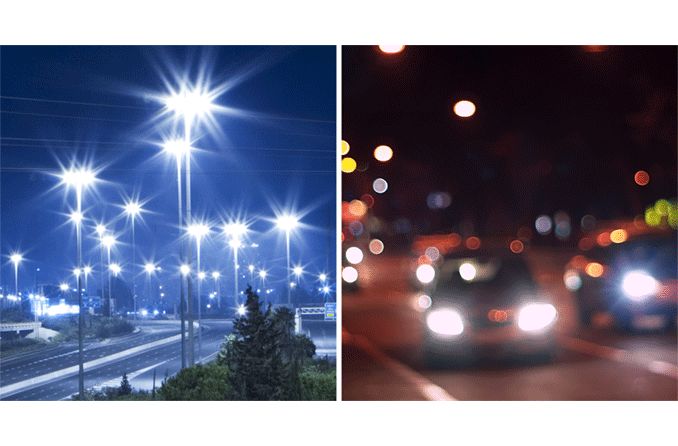For many, the prospect of vision correction through Lasik surgery is a life-changing experience. It can be an exciting moment when you suddenly have perfect eyesight without the need for glasses or contacts. But what happens if you come out of the procedure with blurred vision? In this article, we’ll examine what causes blurred vision after Lasik and how it can be treated.
Contents
What is Blurred Vision After Lasik?

If you experience blurred vision after Lasik, it is most likely due to the healing process. It can take up to three months for your eyes to fully heal. In the meantime, your vision may be blurry or hazy.
Although LASIK surgery has become extremely safe and effective, the recovery process from any surgery takes time, and we want you to know what to expect afterward. It takes some patients up to a week for their vision to return to normal, but for others, it may take up to 48 hours. You may be alarmed by some of the side effects you experience after LASIK surgery, but most of them are quite normal and will eventually subside.
A wonder of the modern age of vision is LASIK eye surgery, which is a procedure for correcting conditions ranging from astigmatism to myopia and improves the eyesight of many people. It is common for people who undergo LASIK surgery to experience blurry vision afterward.
After surgery, your vision may be hazy or blurry for a few weeks, but it usually clears up after that. It usually takes about 2 to 3 months, however, for your vision to stabilize and for your eyes to fully heal.
If you experience significant vision problems after Lasik, please see your doctor.
What Are The Reasons You Have A Blurred Vision?
Some Of The Reasons are:
Presbyopia
As we grow older, our eye lens becomes less flexible and our near vision starts to gradually weaken. This is the primary guarantee. The lens of the eye can focus at both distance and near when we are young. To see up close, people over 40 need reading glasses, bifocals, or trifocals. A workaround for this is a type of LASIK called Monovision LASIK, where one eye is corrected for distance and the other eye for close.
Cataracts
Cataracts are a clouding of the lens that makes vision blurry, and hazy, and are associated with visual disturbances like glare, starbursts, and haloes that are caused by the aging process if we live long enough. There is a solution to this problem in cataract surgery. With new multifocal lens implants, like the ReSTOR and Crystalens, vision can be corrected both near and far, thus eliminating this problem.
Myopia
When a patient is in their early 20s, nearsightedness usually stops progressing. If your nearsightedness progresses after LASIK, your vision will start to get blurry. In some cases, myopia may progress until the 40s or 50s. A residual myopia correction procedure may be required.
Farsightedness
LASIK is more challenging for farsighted patients than for nearsighted patients. In most cases, farsightedness increases with age. Farsighted patients are more likely to need enhancement surgery.
Keratoconus
Corneal disorders are rare, but Keratoconus is one of the most common. In Keratoconus, which can be seen in a few different ways, the cornea starts to thin out, and astigmatism increases. Because there isn’t a reliable test to help doctors figure out if you have subclinical forms of the disorder or not, some patients just want to avoid surgery altogether if they’re at risk for it. There are two options for treating Keratoconus: PRK or Corneal transplant. If your symptoms are worse than usual or change, then a Corneal transplant may be an option.
Dry eyes
Some people experience a temporary disruption in vision after LASIK surgery. During the first few months, your eyes will be dry and vision can fluctuate. If you’re not experiencing optimal results, there are other treatments that you can use that may be more effective for you than LASIK. For example, PRK surgery tends to have less of a drying effect on the eyes and this might be what you want to consider. People with severe dry eye or diseases such as Sjogren’s syndrome or Rheumatoid arthritis should avoid LASIK surgery.
Large pupils
The size of our pupils decreases with age. It has been suggested that people with large pupils may experience more visual disturbances.
Diabetes
Diabetes can affect your vision if it develops later in life. If it persists for a long period of time, it can result in damage to the retina called Diabetic Retinopathy. Diabetic retinopathy is the leading cause of blindness among working age people. When blood sugars are controlled quickly, the eye prescription returns to normal.
Macular degeneration
Macular degeneration is a disease associated with aging.
How to Manage Blurred Vision After Lasik
To manage blurred vision after lasik. Immediately following your surgery, your vision will be blurry for two to three hours. Although your eyesight will greatly improve within 24 hours, you may experience intermittent blurriness and fluctuations in your vision for some time while your eyes adjust to the reshaped cornea. Typically, it takes between three and six months for your eyes to fully recover, and there is a possibility of minor lingering side effects during this period as well.
In many cases, patients notice halos around lights (especially at night), but these halos usually disappear within six months. You may also experience dark red spots in your eyes after the surgery, or dryness or scratchiness. These conditions usually subside within a few weeks.
There are a few things you can do to help improve your vision during this time:
- Wear glasses or contact lenses as prescribed by your doctor
- Use artificial tears to lubricate your eyes
- Avoid rubbing your eyes
- For a week after the surgery, wear eye guards at night to avoid accidentally rubbing the delicate eye area.
- Avoid areas where there is a lot of dust or smoke, as these substances can irritate your eyes.
- It is not recommended to immerse your head in a swimming pool or hot tub because chlorinated water can irritate your eyes.
As your eyes heal, you shouldn’t apply makeup or lotion to the eye area for at least a week.
If you experience blurred vision after Lasik surgery, it is important to see your doctor as soon as possible. He or she will be able to determine if your blurred vision is due to dry eye syndrome or another condition. In order to ensure your eyes are healing properly, it is important to schedule regular follow-up visits with your doctor. Even though LASIK is one of the safest medical procedures, if at any point during the recovery period you feel your vision has not returned to normal or if you experience unusual symptoms, you should consult your ophthalmologist.
Conclusion
Blurred vision after Lasik is a common side effect, but it can be treated. If you experience blurred vision after your Lasik procedure, make sure to contact your eye doctor right away. You may need to take special measures such as using medicated drops or adjusting your glasses prescription in order to help improve the clarity of your vision. With the proper diagnosis and treatment plan from an eye care professional, you can get back to seeing clearly in no time!
If you experience blurred vision after your Lasik procedure, make sure to contact your eye doctor right away.
Lasik surgery is a safe 10-minute procedure to help you get rid of glasses. MantraCare offers the most advanced Lasik options. If you have any questions on lasik surgery feel free to reach out to us at +91-9711116605. We provide effective Lasik surgery in Delhi.
